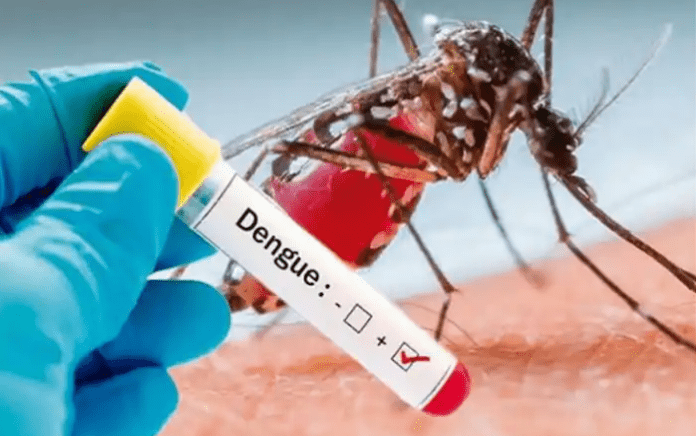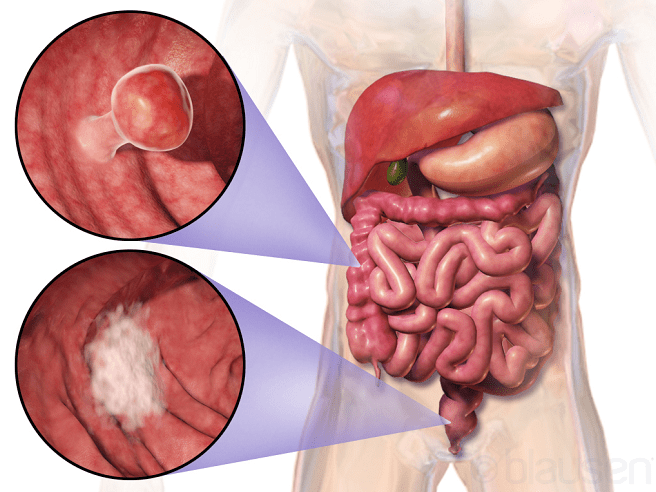Nowadays dengue fever is happening in every house. Compared to the last 20 years, the incidence of dengue fever has increased very much. As a result, extreme fear is captured in our minds. In dengue fever, Lack of proper treatment can lead to death. We can keep ourselves free from dengue fever only if we are a little conscious and careful.

Outbreaks of dengue fever are more prevalent during the months of May to September, especially during hot and rainy seasons. This fever usually does not occur in winter. In winter, these mosquitoes can survive for many days in the larval stage. From that stage new dengue virus-carrying mosquitoes spread out at the beginning of the monsoon.
What is Dengue Fever and What is The Reason for Dengue Fever?
Dengue fever is usually an infectious disease caused by the dengue virus (A. aegypti virus). The disease is caused by the bite of a type of mosquito called Aedes. There are four different types of A. aegypti virus, with one type of infection usually providing lifelong immunity against that type of virus, but other types providing short-term immunity.
Later, other types of infections can cause serious complications. If a person is bitten by a mosquito carrying dengue fever, that person gets dengue fever within 4 to 6 days. Again, when an infected person is bitten by a non-bacterial Aedes mosquito, that mosquito becomes a dengue-carrying mosquito.
This is how dengue is spread from one person to another through the Aedes mosquito, which carries the dengue virus. May to September, The incidence of dengue fever is much higher especially during hot and rainy seasons (monsoon and after monsoon). On the other hand, it can be said that this fever does not usually occur in winter.
Types of Dengue Fever:
There are three types of dengue fever, classical dengue fever, hemorrhagic fever, and dengue shock syndrome.
Classical Dengue Fever:
Classical dengue fever is usually accompanied by high fever as well as severe pain in the body. Fever can be up to 105 Fahrenheit. Severe pain is felt in different parts of the body especially in the head, back of the eyes, bones, waist, back, and other joints and muscles.
4 to 5 days after the fever, red rashes appear all over the body, along with nausea or vomiting, the patient feels extra tired, decreased appetite, etc. In some cases, the fever returns after 2 or 3 days.
ALso Read – Pregnancy Symptoms: 16 Early Signs and Symptoms of Pregnancy You Need to Know
Hemorrhagic Dengue Fever:
Dengue hemorrhagic fever is characterized by the signs and symptoms of classical dengue fever as well as other problems such as bleeding from different parts of the body, fresh blood or black stools with bowel movements, premature menstruation or bleeding in girls, chest or stomach watering, etc. Again, with liver infection, complications such as jaundice, kidney failure, renal failure, etc. may occur.
Dengue Shock Syndrome:
This type of dengue is the most deadly. This can lead to human death. Dengue shock syndrome is caused by dehydration in the human body. Immediately the pulse rate increases a lot and the blood pressure drops a lot. The body becomes cold. Breathing goes very fast. The patient becomes restless.
How is Dengue Transmitted?
It is a disease caused by an RNA virus, which is spread by the Aedes aegypti mosquito. When the female Aedes mosquito drinks the blood of a dengue patient, she first becomes infected with the virus. The female mosquito carries the virus in her stomach.
However, the virus does not have a harmful effect on mosquitoes. After about 8-10 days, the virus spreads to other parts of the mosquito’s body and enters the saliva through the mosquito’s salivary glands.
The virus is transmitted to humans by the bite of a mosquito that carries the dengue virus. The virus first enters the skin through saliva. Later enters the white blood cells. When those cells move throughout the body, the virus continues to reproduce inside them.
In severe infections, the production of the virus inside the body is greatly increased. Dengue can be fatal in people with chronic diseases, such as diabetes, asthma, anemia, and TB, and in the elderly.
Also Read – High Blood Pressure or Hypertension: 8 Ways To Control High Blood Pressure
Symptoms of Dengue Fever:
Dengue fever usually causes high fever (up to 105 Fahrenheit) as well as severe pain in the body, especially in the bones, waist, back, joints, and muscles. It can also cause headaches and back pain. 4 to 5 days after the onset of fever, red rashes appear all over the body, which is called skin rash.
It’s a lot like an allergy or a rash. It can cause nausea and even vomiting. Patients with dengue fever experience excessive fatigue and decreased appetite.
This condition can be very complicated, among other problems, bleeding from different parts of the body can happen, such as from the gums and teeth, with phlegm, vomiting blood, under the skin, through the nose and mouth, stools with fresh blood or black stools, bleeding from eyes, etc.
In the case of girls, if menstruation or bleeding starts untimely, symptoms like bleeding for many days may appear. In many cases, this disease can cause chest or stomach watering, jaundice of the patient due to liver infection, renal failure due to kidney infection, etc.
When to Go to The Doctor for Dengue Fever?
Since there is no specific treatment for dengue fever and this fever usually gets better on its own, general treatment according to the symptoms is sufficient. However, some complications such as shortness of breath, bloating, bleeding in any part of the body, low platelet levels, excessive fatigue or weakness, severe abdominal pain, nausea or vomiting, decreased urination, jaundice In case of occurrence, etc., treatment should be given with the advice of a specialist.
What Test Should be Done for Dengue Fever?
In most cases, dengue fever requires a lot of testing; it will be a waste of money. A necessary examination should be done as per the advice of the doctor. CBC and platelet tests should be done 4 to 5 days after fever. If tested earlier, the report may not contain the dengue virus.
Usually, if the platelet count is less than one lakh, the next step should be taken keeping in mind the dengue virus. Dengue antibody tests can be done after 5 to 6 days. It helps in diagnosing the disease. Since it has no role in the treatment of the disease, there is no problem without this test.
If necessary, blood sugar, liver tests such as SGOT, SGPT, alkaline phosphatase, etc. may be done. Again, if the doctor thinks that the patient is suffering from any problem like DIC, then prothrombin time, APTT, D-dimer, etc. should be tested.
What Kind of Situation Should the Patient be Admitted to the Hospital Without Leaving at Home?
If the patient’s blood pressure decreases, pulse rate increases, urination decreases – then it is a sign of danger. In this case, the patient must be admitted to the hospital or the nearest health center. In that case, the loss of life of the patient can be prevented. Other symptoms are also worrying. For example, the patient vomits, abdominal pain, bleeding from different parts of the body, etc. These are all signs of increased disease levels.
Dengue Fever Treatment:
The treatment of dengue fever is the same as for common fever. Most patients with dengue fever usually recover on their own within 5 to 10 days without any treatment. However, the patient must follow the doctor’s advice so that no serious dengue complications occur. The following are some of the things that can be done to treat dengue fever:
These are the steps you should follow:
- Paracetamol should be taken for fever, a maximum of 4 times a day.
- Adequate rest is required.
- The body must be wiped repeatedly to reduce fever.
- Fever causes dehydration. So drink plenty of water and liquid foods, such as oral saline, fruit juice, coconut water, etc.
- If a patient cannot drink the water due to vomiting, saline should be given intravenously.
- Antibiotics, aspirin, or any other painkillers should not be taken at all.
- If you are suffering from dengue hemorrhagic fever, you must be admitted to the hospital for treatment. Such patients need to drink plenty of water.
- Generally, not all dengue patients need blood transfusions. If the blood platelet count is less than 10,000 or if there is bleeding in the body, platelet concentration may be required. If the serum albumin is less than 2 g / dl or the affected person is shocked, plasma or plasma substitute has to be given. If the platelets count in the blood drops below 50,000, blood should be collected on an emergency basis.
Why is it Forbidden to Give Aspirin?
If dengue fever turns into a hemorrhagic fever, taking aspirin can be fatal. Then there may be bleeding from various parts of the body. This can endanger the life of the patient. In addition, the patient has to give ORS. Saline is given when admitted to a hospital or health center to prevent dehydration.
What Should be Done to Prevent Dengue Fever:
There is no recognized vaccine for the dengue virus. Dengue fever, necessary measures must be taken to prevent the spread of Aedes mosquitoes and to prevent the mosquitoes from biting. They usually lay their eggs in clear and clean water. They cannot lay eggs in dirty or smelly water. Therefore, in order to prevent dengue, the places suitable for laying Aedes mosquitoes should be cleaned and necessary steps should be taken to eradicate the mosquitoes.
- If there are ponds, bushes, jungles, etc. around the house, it should be kept clean and tidy.
- Water stored in the bathroom or anywhere else should not be left for more than 5 days. Again, water should not be frozen under the fridge, air conditioner, or aquarium.
- Since the Aedes mosquito lays its eggs in a place where clear water accumulates. So if there is a vase, unused box, coconut shell, abandoned tire, etc., it should be removed.
- If you sleep during the day, you must sleep with a mosquito net or a coil.
- Aedes mosquitoes usually bite in the morning or evening, although they can bite at any other time. So during the day, the body should be well covered with cloth, if necessary use mosquito repellent and of course put nets on the doors and windows of the house.
- The dengue patient must be kept under a mosquito net at all times so that no mosquito can bite you.
- Mosquito repellent should be used day and night to avoid mosquito bites along with the use of sprays, coils, mats, etc.
Dengue or Viral Fever Does Not Require Antibiotics:
The incidence of dengue fever increases during the monsoon and after the monsoon. Sometimes it rains in torrential downpours and sometimes in bright sun or scorching heat, different types of viral fever are caused mainly due to differences in weather and humidity in the air.
In case of fever at this time, the advice of a doctor should be taken immediately and special care should be taken for the affected patient. Ninety-nine percent of dengue infections usually occur during the rainy season and later in the rainy season when water is stagnant.
Patients usually take painkillers only when they have a fever or pain, but painkillers should not be taken if they have dengue, and no antibiotics are needed for dengue patients.
Final Words About Dengue Fever:
Dengue fever patients usually get cured normally by themselves by taking proper rest and treatment. In some cases, it can cause complications in the body. There is nothing to panic about in this fever in general.
If the doctor’s advice is followed properly, the dengue patient becomes completely healthy in a few days. Since there is no vaccine for the disease, it is important to build a resistance against dengue fever by destroying the environment conducive to mosquito growth, reducing the mosquito population, and surviving mosquito bites.






